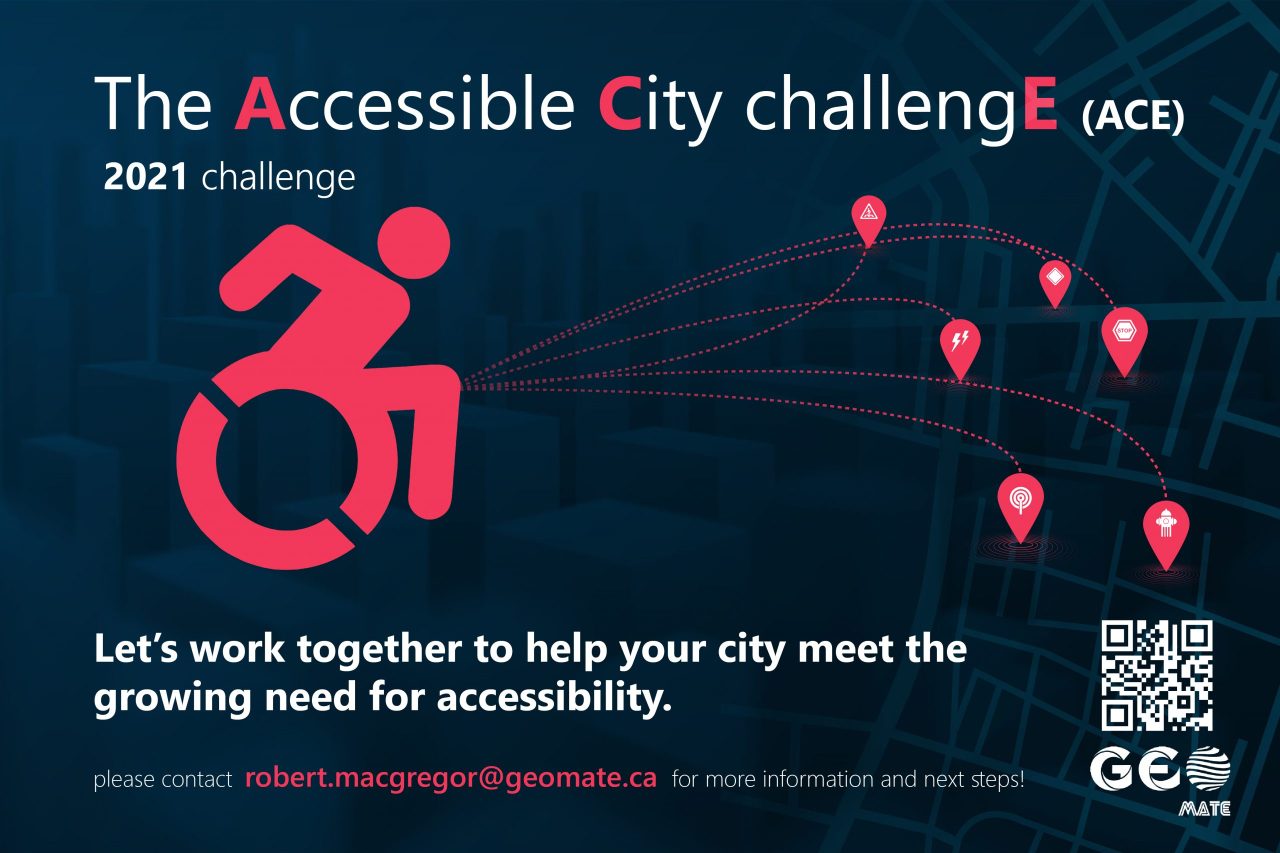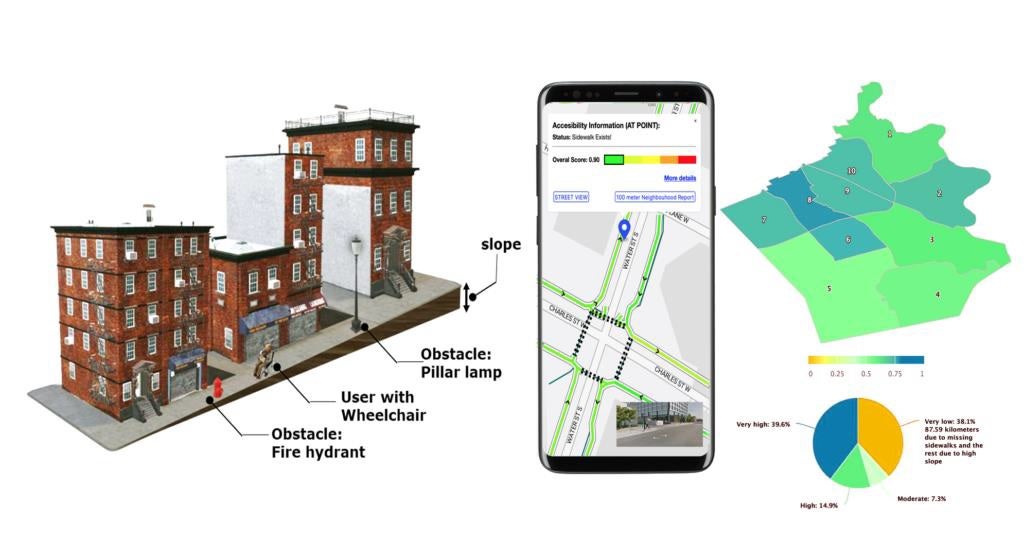On Tuesday July 13th, 2021, Grebel Peace Incubator participant GeoMate launched the first ever Accessible City Challenge (ACE). Created to help Canadian cities meet the population’s growing need for accessibility, ACE is GeoMate’s invitation to municipalities to collaborate for transformative change and embrace a more accessible future.

The Accessible City Challenge, or “ACE” for short, asks North American municipalities to collaborate with GeoMate to investigate the accessibility barriers in their communities, and encourages them to address the needs of their local populations.
GeoMate’s Head of Communications, Robert MacGregor, explains in the pilot statement for the challenge that while “accessibility has become a key aspect of municipal planning, for those with mobility concerns getting around can still be dangerous,” and “tracking which areas are inaccessible and experiencing quality issues is a challenge in the growing urban landscape.” That’s where GeoMate’s geo-spatial mobility platform, AccessMate comes in.
Powered by Artificial Intelligence, AccessMate uses Geographic Information Systems (GIS) to create datasets that outline the level of safety associated with different travel routes. The benefits of this platform are two-fold: AccessMate informs professional assessments and projects led by municipalities, insurance companies, and civil engineers, and it makes navigation safer and easier for the everyday travel of citizens.
For more on AccessMate and GeoMate’s community involvement, read “Centre start-up taps into innovation ecosystem”.
By taking part in the Accessible City Challenge, GeoMate’s partner cities will receive an accessibility score that summarizes the level of ease or difficulty a given area poses to pedestrians of all modalities. MacGregor explains that even cities that might not have the capacity to address accessibility needs right now can benefit from receiving this score because it “gives insight into how cities are doing and what they can do better” for all members of their communities.

Example analyses developed with AccessMate. Depictions from left to right illustrate accessability information based on sidewalk obstacles, with a street map, and through a map of geographic regions coloured to indicate their respective accessibility scores.
With its mission to make the world accessible and walkable for everyone, GeoMate aims to map more cities to gather the information needed to make relevant decisions regarding construction, planning, and accessibility across Canada. With enough traction, this program will continue into the future, generating more connections between municipalities and GeoMate.
Future iterations of the challenge will enable partners to assess their improvement over time and to map new areas. ACE offers municipalities the opportunity to improve planning processes and build better communities for all of their citizens. For municipalities willing to take on the challenge, ACE is the future of accessibility.
Visit GeoMate’s website to learn more about the Accessible City Challenge, and contact Robert MacGregor for more information about the program and reaching your community’s accessibility goals.